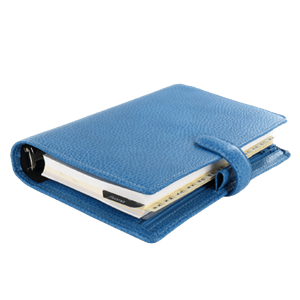About Urinary Incontinence
Losing urinary control is nothing to be ashamed about because you are not voluntarily soiling your clothes on purpose. It can be embarrassing and inconvenient, but incontinence is a medical condition that needs to be managed so you can live a healthy life. At Atlanta Cosmetic Urology, our board-certified urologist, Dr. Tariq Hakky, see patients in his office for all types of incontinence. Whether you have stress, urge, fecal, and overflow incontinence, Dr. Hakky has the knowledge and skill to help you get back on track with urine and fecal control. Many patients shrug off the early signs of incontinence as something that just happens once in a while or disregard it as a urinary tract or bladder infection. Regardless of when it is happening, Dr. Hakky can help you find out why it is happening and how to manage the problematic symptoms.
People living with incontinence can experience several types of this condition. We know that some of the causes of incontinence have to do with age, hormone levels, deterioration of the pelvic floor muscles, inflammation, and neurological dysfunctions.
- As you age, there may come a time when it will be difficult to control your bladder or bowels from releasing urine or fecal matter.
- Hormone levels will fluctuate throughout your lifetime. When women age, they see a decrease in estrogen, which atrophies the vaginal walls, muscles, and then the ability to control the flow of urine. Vaginal trauma (like pregnancy and childbirth) can also contribute to the problem.
- Men with BPH or an enlarged prostate can experience incontinence.
- Miscommunication from the brain to the nervous system (neurological disorders and dysfunctions)
If you would like to discuss your issues with incontinence with Dr. Hakky, we invite you to make an appointment at our Atlanta, GA office. There is no referral needed. You can talk to him privately in one of our consultation rooms at your earliest convenience.
Reviews
Types of Urinary Incontinence
There are four types of urinary incontinence that can become a problem for both men and women — stress, urge, fecal, and overflow incontinence.
Stress Incontinence
When you are older and put extra pressure or stress on your bladder, you may experience loss of urinary control. Stress incontinence happens when the muscles that hold in your urine become weak or atrophied. You may not even recognize that you have a problem until it happens when you least expect it. For example, you may regularly go to the gym to lift weights, but if you push yourself to lift heavier and heavier — you may notice urinary leakage.
At Atlanta Cosmetic Urology, we first recommend that you try behavioral interventions, like going to the bathroom before strenuous activity, avoiding drinks that trigger your bladder more frequently, and exercises to strengthen the muscles that help you retain urine. If more aggressive treatment is needed for advancing symptoms, you may qualify for a surgery or a sling.
Urge Incontinence
Urge incontinence happens when you do not get the warning signal that you have to urinate, which results in you not making it to the bathroom in time to urinate or defecate in the toilet. Patients who are most at risk for this type of incontinence are usually older than 40 or a woman who has had a baby. It is also more likely to happen to patients who are overweight, have a medical condition that damages nerves, prostate inflammation or prostate cancer, or frequent urinary tract infections.
Fecal Incontinence
When you lose the ability to control your bowel movements, you are likely enduring your life with some form of fecal incontinence. Many patients believe fecal incontinence to be about having diarrhea, but it is much more than an occasional bathroom accident. From acute to chronic, fecal incontinence can present itself as:
- An inability to hold in any fecal matter when the brain signals (urges) that it is time to use the restroom
- A bowel movement without knowing that it came out (from a full bowel movement to short spurts of fecal matter)
- An inability to stop gas from passing (flatulence)
- A combination of symptoms that involve the passing of fecal matter (blood in the stool, cramping in the bowel, back pain and pressure, diarrhea, constipation, and more)
Overflow Incontinence
Overflow incontinence actually starts in the bladder. When the bladder is not strong enough to retain urine, the urine will come out (usually without warning). A person with overflow incontinence may always feel like their bladder is full and has a lot of trouble with bodily signals and deciphering when to go to the bathroom.
Treatment Techniques
Before you receive treatment for urinary incontinence, you will go through a diagnostic process so that Dr. Hakky can recommend the right treatment for you. Not every incontinence patient has the same level of symptoms, which requires Dr. Hakky to personalize your treatment to your needs.
Medications and Therapies
There are many different types of incontinence medications you can take for incontinence, such as:
- Anticholinergics — to shut off the signal in your brain that your bladder is contracting, such as Fesoterodine, Darifenacin, Oxybutynin, Solifenacin, Tolterodine, and Trospium
- Mirabegron — to increase the amount of urine you can hold in your bladder
- Estrogen for women —to fight the atrophy of the muscles in the area
Nonsurgical treatments that may also be beneficial are:
- Wearing incontinence pads
- Catheterization
- Behavioral therapy
- Bathroom schedule
- BioFeedback
- Exercises to strengthen pelvic muscles
Male Sling
The male sling for urinary incontinence may be a treatment for men who have weak sphincter muscles and can no longer hold their urine. With a synthetic material, the male sling is surgically fixed near the urethra for it to be in a new position to help with starting and stopping the flow of urine.
Artificial Sphincter Surgery
When the sphincter muscles no longer work properly, it will be very difficult to hold your urine. Dr. Hakky performs artificial sphincter surgery, which implants a device that will simulate the sphincter muscles. It is an inflatable cuff placed near the urethra and the scrotum. When the cuff is not inflated, urine can make use of the passage. Once the cuff is full again, it blocks urine from escaping the urethra.
Interstim
For sacral nerve stimulation, Dr. Hakky has the InterStim technology he can implant inside of your body to help you regulate your bladder contractions and signals. With a short electrical impulse to your sacral nerves, the InterStim controls the excessive urges in your bladder to urinate for incontinence relief.
What to Expect
Even if you are in the early stages of incontinence or have lost all control, Dr. Hakky will provide you with the information and resources you need to make an informed decision about your treatment. Step by step, he will make sure you understand the processes and reasoning behind each treatment option. You can expect that he will want to monitor your progress very closely initially so that he can make changes to your treatment if necessary.

Plan Your Procedure
- Recovery Time
- Varies
- Average Procedure Time
- Varies
- Post-op Follow-up
- Varies
- Procedure Recovery Location
- Varies
Don't Wait – Call Today
Living with urinary incontinence can take over your life as you have to make every decision based on your bathroom schedule or routine. There are many state-of-the-art medical options that can help besides wearing incontinence pads. Dr. Hakky would like to help you explore all the opportunities you have available to you at Atlanta Cosmetic Urology in Atlanta, GA.




